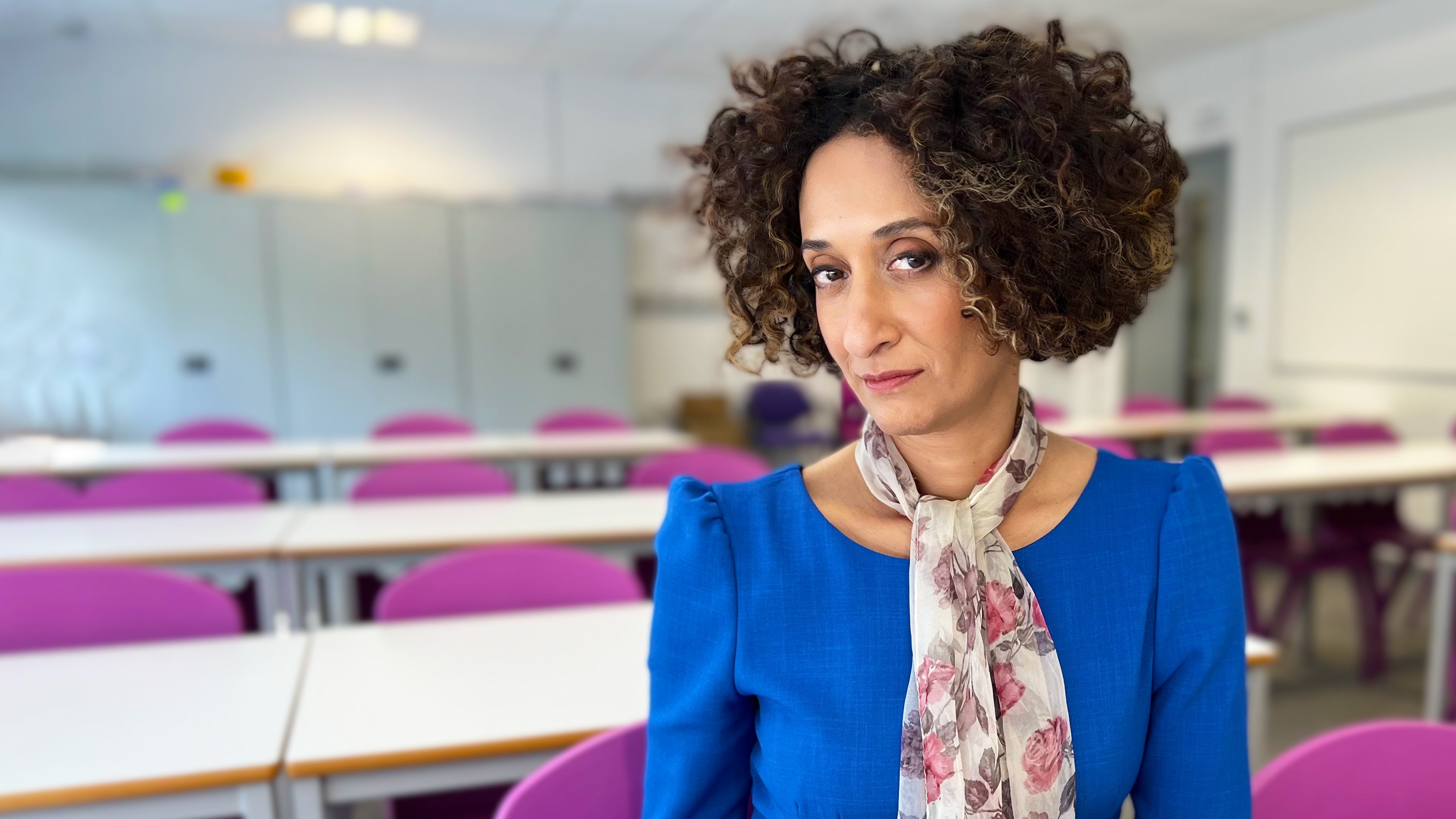Britain’s Strictest Headmistress doesn’t speak for teachers like me – she’s out for herself
The documentary featuring London head Katharine Birbalsingh didn’t do anything to reassure me that she is interested in helping other teachers to thrive alongside her


On Sunday night, ITV aired the documentary Britain’s Strictest Headmistress. It was the latest in a stream of media appearances by Katharine Birbalsingh, the headteacher of Michaela Academy in Wembley Park.
As a teacher at a state school not far from Michaela, I was hopeful that Birbalsingh would offer some insight into how teachers can work together to address some of the biggest issues facing children today.
Instead, what we got was a disclaimer on Twitter from the Birbalsingh, inviting us to buy the feature-length film for the full story, a seven-point “Michaela Manifesto”, and the impression that Birbalsingh sees herself as the sole hope for children in this country. To borrow a phrase from countless classrooms, I was disappointed, but not surprised.
Michaela is evidently an excellent school. Even before one hears the polite, articulate, and enthusiastic testimonies from students in the documentary, its academic reputation is exceptional, with a progress 8 score that places it within the top 10 schools in the country, according to 2019 figures.
Many of the well-established routines, such as silent corridors, paired rehearsals of answers in class and ditching smartphones for extended periods really do foster academic success and pupil safety.
But, to me, the suggestion that such practice is especially controversial or unusual is disingenuous. Schools like Mossbourne Academy in Hackney and King Solomon Academy in Marylebone, as well as some charter schools in the US, have been using traditional methods since long before Michaela’s inception. The works of authors like Doug Lemov and Tom Bennett, both of whom champion approaches like Michaela’s, are key texts on most teacher training courses.
This does not stop Birbalsingh from bundling up Michaela’s methods into books with titles like Battle Hymn of the Tiger Teachers, or her staff from describing her as a “one-man army” in the early minutes of the programme and saying they would “follow her into battle” as the show reaches its conclusion.
Throughout the documentary, she appears to view herself as a plucky outsider, the long-awaited scourge of Michael Gove’s famous “blob”. But for someone so critical of rebellion among her students, she seems to me to be very keen on picking fights where none exist. If the backing of education researchers, handshakes from ministers, fantastic results and gushing praise from teachers worldwide aren’t enough to convince her that she’s won the pedagogical argument, then what is?
I believe wholeheartedly that Birbalsingh has children’s best interests at heart, but so do thousands of teachers up and down the country, including in schools with similar intakes that outperform Michaela.
Wembley High Technology College, just up the road from Michaela, has an inspirational leader in Paul Bhatia and a higher progress 8 score. The top three schools for progress 8 in 2019 were all single-sex Muslim schools within the Star Academies Trust, but curiously, neither Conservative ministers nor the media seemed to think these were as worthy of coverage as Birbalsingh and Michaela. Perhaps they weren’t fortunate enough to have book editors who could put them in touch with Gove, as the documentary mentioned that Birbalsingh’s did.
Ironically, it’s twists of fate like this that Birbalsingh seems most keen to disavow. The emphasis she places on personal responsibility above all else certainly helps her students feel empowered, but in my view it leaves no room to grapple with some of the biggest systemic problems hampering student progress, such as rising child poverty, plummeting teacher recruitment and retention, and brutal cost of living challenges.
To keep up to speed with all the latest opinions and comment, sign up to our free weekly Voices Dispatches newsletter by clicking here
These are some of the issues that the very Social Mobility Commission she chairs said she would do well to acknowledge, but unfortunately, she doesn’t seem keen to do so here.
Teachers can overcome these problems, she seems to argue, if they will only be more like Birbalsingh and take responsibility – which is, of course, a great way to sell books and documentaries – but the second that any of her remarks face public scrutiny, then it is suddenly an imagined “mob” that ought to take responsibility for the fallout, and not her.
The education system is an unfair game, and Katharine Birbalsingh has worked out how to play it very well. But last night’s documentary didn’t do anything to reassure me that she’s interested in helping other teachers to thrive alongside her.
When she’s finished with the media rounds this morning, I hope she can celebrate her school’s successes with her team: she might be Britain’s Strictest Headmistress, but if she insists on making it all about her, she might just be Britain’s loneliest too.
William Yates is an English teacher at a secondary school in west London
Join our commenting forum
Join thought-provoking conversations, follow other Independent readers and see their replies
Comments
Bookmark popover
Removed from bookmarks